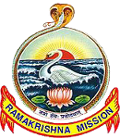The field of Big Data Analytics lies at the intersection of statistics, mathematics, computer science and engineering. In recent years, development of sophisticated learning algorithms coupled with the availability of massive datasets and facilitated by powerful and efficient computing infrastructures, have led to pioneering improvements in the field of analytical applications.
RKMVERI offers a two year (four semester) MSc degree programme in Data Science and Artificial Intelligence. The curriculum encompasses topics from Mathematics, Statistics, Economics and Computer Science and Engineering.
This two year degree programme equips the student with the skill to assimilate, manage, analyse and interpret large datasets.. They will also learn business functions and analytics in various domains from Finance to Retail to Pharma, etc. During the fourth semester the students undertake the MSc degree project, which can either be a research project or a full time internship programme at a reputed organization.
This MSc degree programme is designed in collaboration with Tata Consultancy Services (TCS), under its whole new long term initiative called Academia Interface Programme.
Click for MSc Big Data Analytics Syllabus 2025
Program outcome
- Inculcate critical thinking to carry out scientific investigation objectively without being biased with preconceived notions.
- Equip the student with skills to analyze problems, formulate an hypothesis, evaluate and validate results, and draw reasonable conclusions thereof.
- Prepare students for pursuing research or careers in industry in mathematical sciences and allied fields
- Imbibe effective scientific and/or technical communication in both oral and writing.
- Continue to acquire relevant knowledge and skills appropriate to professional activities and demonstrate highest standards of ethical issues in mathematical sciences.
- Create awareness to become an enlightened citizen with commitment to deliver one’s responsibilities within the scope of bestowed rights and privileges.
Program Specific Outcome
- Basic understanding of statistical methods, probability, mathematical foundations, and computing methods relevant to data analytics.
- Knowledge about storage, organization, and manipulation of structured data.
- Understand the challenges associated with big data computing.
- Training in contemporary big data technologies
- Understanding about the analytics chain beginning with problem identification and translation, followed by model building and validation with the aim of knowledge discovery in the given domain.
- Applying dimensionality reduction techniques in finding patterns/features/factors in big data.
- Estimation of various statistics from stored and/or streaming data in the iterative process of model selection and model building.
- Future event prediction associated with a degree of uncertainty.
- Modelling optimization techniques such as linear programming, non-linear programming, transportation techniques in various problem domains such as marketing and supply chain management.
- Interpret analytical models to make better business decisions.
Eligibility
Please refer to the Admissions Section.
